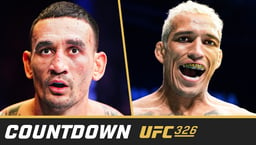
Issue 113
April 2014
Renan Barao is a monster. If you don’t yet believe it after hearing Joe Rogan scream the line over and over during promotional spots for the new UFC bantamweight champion’s recent fights, take my word for it.
And yet, for some reason, he seems to be one of the most under appreciated fighters on the UFC roster. Whether it’s disdain for his admittedly questionable dance moves or perhaps simply a language-barrier between a large number of fans and the Portuguese-speaking Brazilian, Barao simply does not seem to garner the respect he deserves.
It’s understandable that he flew under the radar in the early part of his career. He fought twice under the now-shuttered WEC banner, and incredibly, both of his appearances served as the very first fight of the night. Ditto for his UFC debut, a May 2011 win over Cole Escovedo.
But after he was elevated to co-main event status for his November 2011 win over Brad Pickett, a scintillating performance in which Barao showed incredible speed and grappling acumen in a first-round submission, there is simply no excuse for not considering the Nova Uniao product must-see TV.
Every time Barao steps in the cage he shows a new wrinkle to his game; a new tool in his arsenal. In his UFC 169 win over Urijah Faber, Barao’s aggression and laser-sharp accuracy were on full display.
I happen to agree with both Faber and UFC president Dana White that the fight was stopped a little early in what can only be called a very rare Herb Dean misstep, but I also don’t believe the final outcome was ever in jeopardy of being any different.
No disrespect to ‘The California Kid,’ who remains one of the greatest fighters on the planet, but he was not coming back to win that fight.
Barao’s teammate, UFC featherweight champ José Aldo, is also one of the absolute best fighters in the sport. The two both reside at the very top of the list in terms of the world’s top pound-for-pound champions. But unlike Aldo, Barao’s finishing rate is actually increasing.
He seems to be playing it less safe as a champion and his pre-fight promises to look for every opportunity to end a fight stand out as more than just empty pre-fight clichés.
I hope we’ll see Barao one day face stripped former champ Dominick Cruz, and I pray when it happens Cruz is unquestionably 100% recovered from the unfortunate series of injuries that have plagued his career.
But if that fight never comes, I still look at Barao as the unquestioned king of the division, and I hope he starts to receive the proper acknowledgement for a remarkable ascension to the top of the bantamweight class.
At just 27 years old, he has all the tools to become one of the best ever, so pay attention while you can. True monsters only come along every so often.
The (hopefully) impending demise of TRT
I know the casual MMA fan is probably sick and tired of hearing about testosterone replacement therapy (TRT) in the sport, but there’s a reason the discussion isn’t going away. The use of performance-enhancing drugs (PEDs) remains one of MMA’s most concerning topics, and it cannot be left unchecked.
TRT is not the only PED being utilized by top fighters, you can count on that. But it is the most prevalent right now, and the willingness of some athletic commissions to offer therapeutic-use exemptions (TUEs) for testosterone treatment remains a valid concern.
Where you stand on the issue doesn’t matter. There is a case to be made that any medical science breakthroughs that would allow professional athletes to further their career and keep their bodies in better physical condition should at least be considered, especially if it means the potential for a better quality of life after their competition career is over.
But as it stands now, there are simply too many gray areas and not enough monitoring done to satisfactorily confirm all competitors are on a level playing field.
I don’t say any of this as an attack on Vitor Belfort, who has unquestionably become the poster boy of TRT based on his late career run back to the top of the middleweight division. In fact, I honestly don’t think it would be fair to take him off TRT after allowing him to compete with it for so long.
What I do hope is that we can work towards a system that either eliminates TRT altogether or finds a way to initiate much stricter testing policies. If we can’t eliminate the need for the therapeutic-use exemptions, then let’s at least admit we need to be much more diligent about managing those in treatment, no matter the financial cost.
By John Morgan, former Fighters Only World MMA Awards ‘Journalist of the Year’
...









